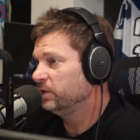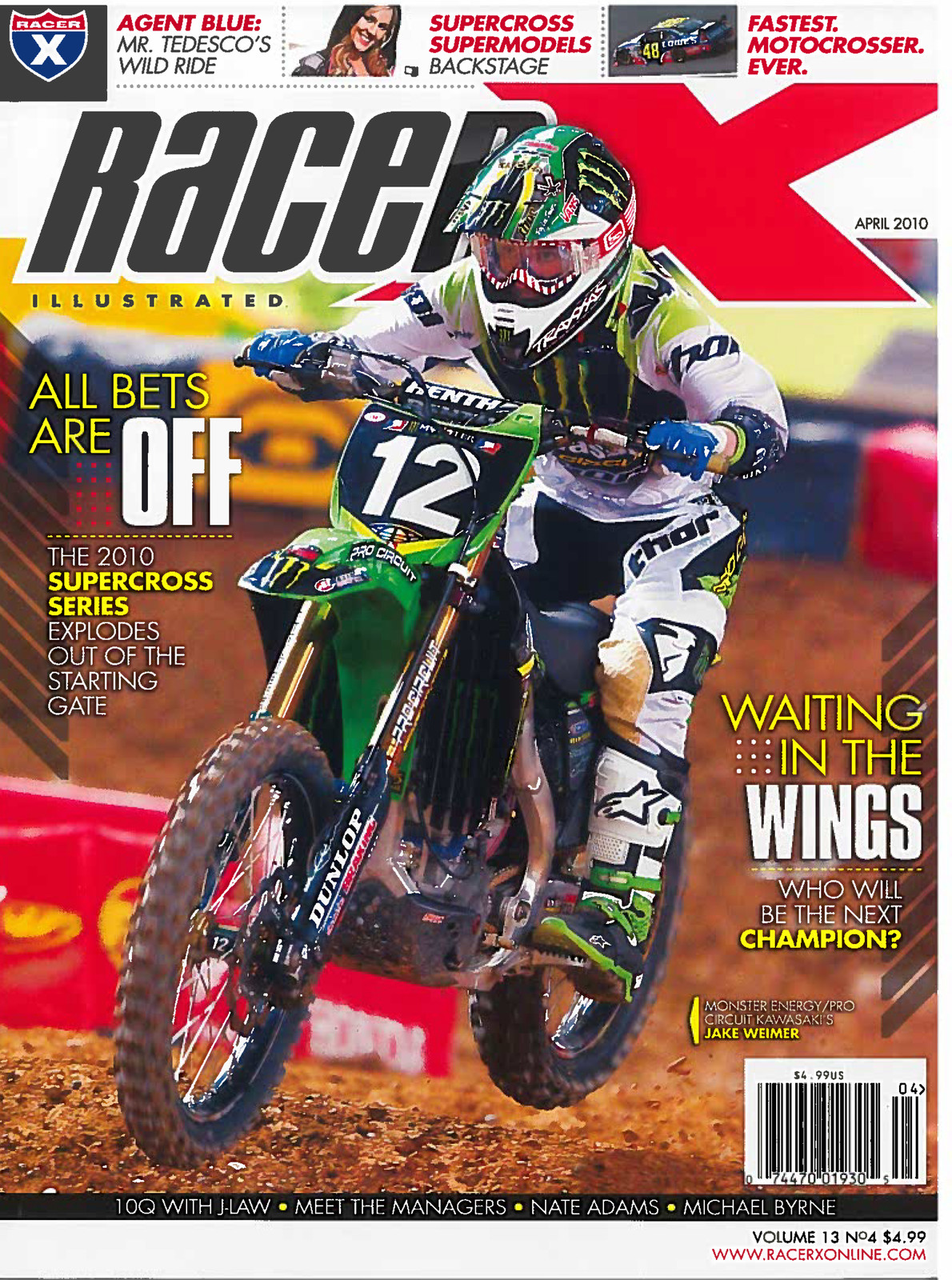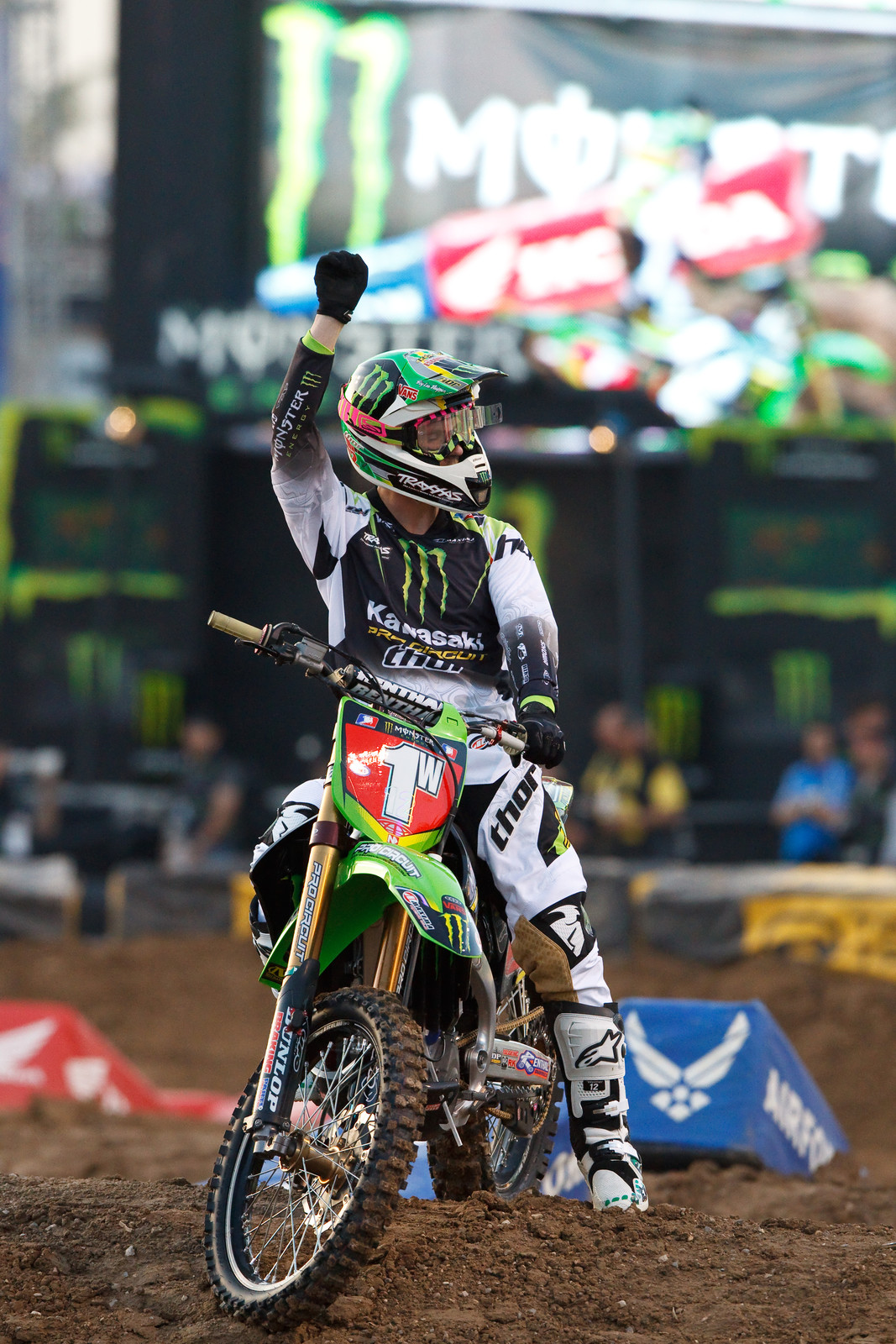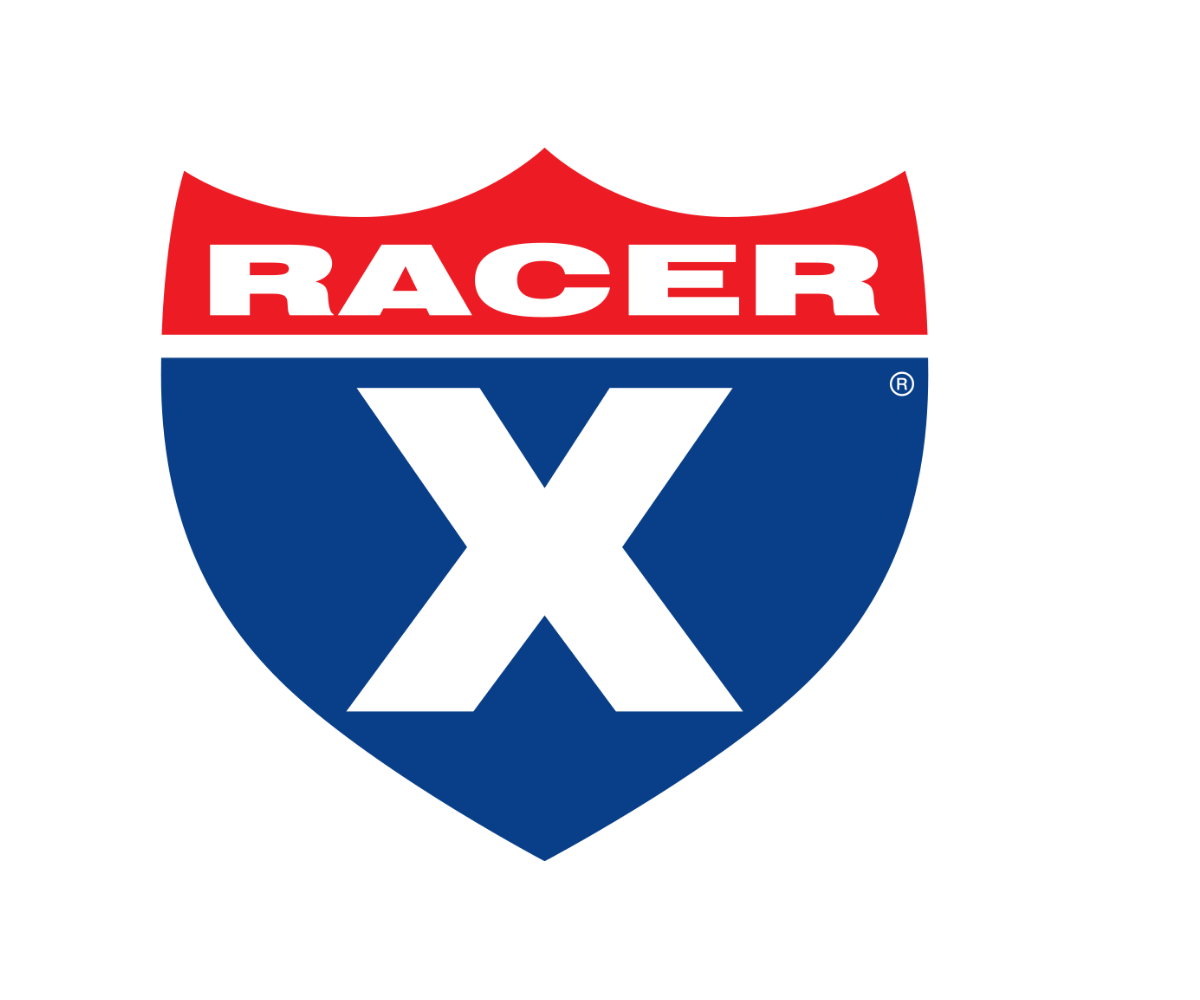Annnnnd, scene. Jake Weimer called it a career today, and a good one it was. Weimer grabbed wins in the 250 class indoors and out and also claimed the 2010 250SX West Region Championship. In the 450 division, he finished on the podium several times indoors and out, also. When you can say that, I think you can be happy with what you’ve done. A longtime media favorite for his candidness and thoughtful answers, Weimer’s going to still be around the sport, though. We caught up to him to find out why and what’s next for him.
Racer X: So, the news came out. You’ve decided to call it a career. It was a tough year for you, no doubt, in 2018. Talk us through the decision behind this.
Jake Weimer: I think just the past year, like you said, was the majority behind the decision. When I got hurt last September, that one definitely took a toll on me and was tough to come back from. And then I immediately again got injured, which—that one wasn’t a big deal, but it was just another setback. I guess, ultimately, I felt like it was time. That’s a tough question to answer. I had the option to go race again for 2019, and originally I figured I would, but I took a couple months off. I didn’t ride. I didn’t do anything. It just at that point become more clear to me that I just felt like it was time. I can walk away relatively healthy. I’ve been fortunate as far as head injuries and stuff like that.
I’ve had some really big injuries, but I’ve recovered well from those for the most part. I just felt like I had a good run. I accomplished a lot of things. I accomplished things that I didn’t even think I would. I accomplished some things that were a goal of mine for many, many years. I’m not getting any younger, and it gets tougher and tougher. I don’t know if I have an exact, definite answer, like this is why or that’s why. It just kind of slowly turned into I felt like that was what I wanted to do.
Like you mentioned, you had a chance for a ride, so it’s not one of those situations. MotoConcepts was very interested in bringing you back.
Yeah. I had a conversation with them in Vegas after the race. They obviously knew that I went through a lot this year, injury-wise. I didn’t even really get a shot at even racing, really. They were supportive. They were cool. They were understanding. I told them, I’m not going to ride. I’m not going to do anything for a month or two and just let my body heal and rest. My elbow was still bothering me. They were like, yeah, no problem. They told me, “If you want to race again, we’ll give you your spot. If not, no worries. We understand.” So they were really cool about it. That was cool. Like I said, initially I thought that I would race again, but I just took some time off and the more I thought about it, it just for me was the right thing to do. It turned into what I wanted to do. I wanted to be done.
I think people don’t have any idea of the work that goes into getting ready to race a season. That’s a full commitment for any rider at your level.
Yeah. I’ve had this conversation with people. General fans that aren’t maybe close to some professional racers or in Southern California where a lot of guys prepare and test and do all of that, there’s no way of knowing the work. I had this conversation last weekend with someone and I’m like, the best way to describe it really is, it’s an obsession. You literally have to eat, sleep, and breathe it to perform at a high, high level. Don’t get me wrong—we have a short off-season, but we enjoy ourselves. It’s not miserable, but it’s a big, big sacrifice. But I don’t want people to think that that’s why. I will always love the sport. I will always ride. I plan to race for years to come, just not in the stadium. That’s a whole other level of racing. This year seems so brutal with injuries. I watched most of the races, and it just seemed like every weekend someone was getting broken off. I think that plays a part of it.
Early in my career, I was never hurt. On a 250, the only thing I ever did, I broke a collarbone one time. I dealt with a back injury that was nagging and that was really difficult to get through, but generally speaking, as far as getting broke and having to have surgery and then rehab and all of those things, in my 250 career, it was really not much. Then I got on a 450, and especially the last handful of years, I was getting busted up all the time. I don’t know why or what or how. That definitely plays a part to it. Like I said, I’m 30 right now. I’ll be 31 next year. I know there’s some guys older than me still doing it, and I applaud them. I’m not saying it’s not doable. I’m just saying for me, I dealt with some pretty big injuries and it got to the point where it’s like, I think I’m good.
Speaking of injuries and stuff, you’ve had some good ones with your arm. Are you fine physically in the mornings to live day-to-day? Are some of these bigger injuries you’ve had still affecting you?
Yeah. About a month ago for some reason—this never happened to me—but two times in one week, I popped my shoulder out getting out of bed. So, I have the shoulder. I could still race with it. It’s good enough to go race, but I guess that gives you a racer’s mentality right there. It doesn’t prevent me from training or riding, but I’m a little bit beat up. Nothing too bad. My shoulder could use some love. I have a knee that could probably use some love. My elbow from when I got hurt last September is definitely a problem. I think it’s only a problem now I need to get the plate out. The plate is really bothering me. None of these things are the reason why I chose to not race. I’m sure everybody that’s done it for a long time has some bumps and bruises that are still with them.
It’s been an amazing career. You have Motocross of Nations. You have a 250 supercross title. You’ve won 250 nationals. You’ve podiumed 450 supercross and motocross races. Can you imagine all of this from back in Idaho when you started?
No, I didn’t ever think I would do as much as I ended up doing. My dream the whole time was to win a West Coast title. That become more real as time went on, that I might actually be able to pull this off. It started as a dream, and then as I got further along, it became reality. But the other stuff I never really thought of. I don’t think I ever truly believed that I could win an outdoor race.
I ended up winning three of those [250 Nationals], and then went to des Nations. So those things, to be honest, I never even really gave it a lot of thought. At the time, I was like, I can be on the podium. Obviously, once I won the first one, then I knew I could and went on to win a couple more. Those things are a bonus for sure.
And the Motocross of Nations. It’s awesome.
I did the little video and sat down to try and do a little research. I started looking at all the stats of things that I had accomplished, and I think I got 12 wins, supercross and motocross combined; des Nations like you said; and then aside from that, like 19 podiums, I believe, and 23 heat races, and some of those were on a 450. I’m happy with it. As a human being, and in hindsight you always are like, “I could have done this or could have done that.” But I am comfortable with what I did and proud of it. I had a long career. I raced for 13 seasons professionally. It exceeded what I think that I truly believed that I could have done. Once you’re in the moment, you believe it, but before it all started, if you would have told me day one when I signed my first deal that you’re going to accomplish this and that and you’re going to race this long, I would have been like, heck yeah. I’m stoked on that.
Let’s not forget the underrated night two win in the U.S. Open on a 250F!
Yeah, got me that win and King of Bercy the one year. There were some cool races in there and a lot of good memories.
What’s the plan for the rest of your life? Do you have one?
Yeah, I’m still going to be around and still come to some races. I’ll always ride. The love for riding is still there, and I don’t foresee that going anywhere. I’m a true fan of the sport and love motorcycles. So I’ll still be around and still going to some races. I’m working on some stuff right now. I’m doing some stuff back home in Idaho that I’ve been working on. At this point it’s still a little bit early, but there’s a really good chance that I’ll be spending quite a bit of time there; for the meantime just working on some stuff that I got going on there. It’s still early and all that, but I’m working on some stuff and excited about some opportunities that I have going. I kind of teamed up with some guys back home and we’re going to do a motocross track, and really more than that, it’s just going to be a big facility with an RV park that’s beautiful and golf course and tennis courts and water slides. It’s going to be a big facility that I’m stoked about, and I think that that’s going to be really cool, especially for our area.
Favorite bike you raced?
The [Pro Circuit] Kawasaki KX250F, for sure.
Favorite teammate or teammates?
I had a couple that I really got along with. I’ve been friends with RV [Ryan Villopoto] for years, so we had some good times together there at Kawi. Also in ’09 at Pro Circuit, Ryan Morais was my teammate, and him and I were super tight. Racing together and then battling on the weekends, so that was a fun time. I really liked the next year, too, with Hanny [Josh Hansen] when he was on Pro Circuit. That was a fun year. I’ve had a lot of cool teammates. I would say those ones probably stand out the most.
Favorite race ever for you, or best race ever?
Vegas 2010, the Shootout, when I won that and the team went 1, 2, 3, 4. That was pretty wild. And just wrapping up the title and having the one and only time that I ran the #1 plate and maybe rode the best race of my career, possibly.
Favorite track?
RedBud. I always enjoyed going there.
Who do you want to thank?
There’s so many people that I could thank, but this is a tough sport and your circle has to be tight and all on the same page. My wife was with me almost my entire career and sacrificed her life to let me live mine. That was cool. My dad, obviously, was a big influencer in helping me get to where I was. Ziggy [Rick Zeilfelder] and Jeff Majkrzak for giving me the opportunity to get out there. That one is big for sure. Mitch [Payton] for helping me accomplish my dreams. Those ones are big. There’s a ton of people.
I felt like it worked out pretty well to where it seemed like I always ended up around a pretty good group of guys and was treated pretty well. There’s a ton of people from goggle guys, gear guys. The SIDI guys. Those dudes went above and beyond for me. I’m not just talking about money, I got hurt one time and they literally paid for a flight for my wife to come to the hospital where I was. So just stuff like that. They were definitely really cool. That list can go on and on. All the teams I rode for. Those ones definitely stand out.










